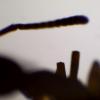- Formiculture.com
- Forums
- Gallery
- Members
- Member Map
- Chat

7 replies to this topic
#1
 Offline
-
Posted December 19 2017 - 8:47 PM
Offline
-
Posted December 19 2017 - 8:47 PM
I would like care info for this sp. Thanks!
My Main Journal | My Neivamyrmex Journal | My Ant Adoption | My YouTube
Join the TennesseeAnts Discord Server! https://discord.gg/JbKwPgs
#2
 Offline
-
Posted December 20 2017 - 5:36 PM
Offline
-
Posted December 20 2017 - 5:36 PM
Also, are these polygynous?
My Main Journal | My Neivamyrmex Journal | My Ant Adoption | My YouTube
Join the TennesseeAnts Discord Server! https://discord.gg/JbKwPgs
#3
 Offline
-
Posted January 4 2018 - 7:40 PM
Offline
-
Posted January 4 2018 - 7:40 PM
HELP.
My Main Journal | My Neivamyrmex Journal | My Ant Adoption | My YouTube
Join the TennesseeAnts Discord Server! https://discord.gg/JbKwPgs
#4
 Offline
-
Posted January 4 2018 - 9:43 PM
Offline
-
Posted January 4 2018 - 9:43 PM
No
Need to make
Three messages
![]()
Their care is like any other Formica species.
Edited by Martialis, January 4 2018 - 9:44 PM.
Spoiler
#5
 Offline
-
Posted January 5 2018 - 1:30 PM
Offline
-
Posted January 5 2018 - 1:30 PM
Not many people have kept Formica from the neogagates group. I've made a few attempts, but the only queen to make it to the worker stage seems to have lost her nanitic to some sort of illness, as if her antennae stopped working. I surmise that they are a little more sensitive than fusca-group Formica.
If you've enjoyed using my expertise and identifications, please do not create undue ecological risk by releasing your ants. The environment which we keep our pet insects is alien and oftentimes unsanitary, so ensure that wild populations stay safe by giving your ants the best care you can manage for the rest of their lives, as we must do with any other pet.
Exotic ants are for those who think that vibrant diversity is something you need to pay money to see. It is illegal to transport live ants across state lines.
----
Black lives still matter.
#6
 Offline
-
Posted January 5 2018 - 2:37 PM
Offline
-
Posted January 5 2018 - 2:37 PM
Thanks! Mine have only got up to nine workers each. They are in the neogagates group? I thought Formica lasiodes were black.
My Main Journal | My Neivamyrmex Journal | My Ant Adoption | My YouTube
Join the TennesseeAnts Discord Server! https://discord.gg/JbKwPgs
#7
 Offline
-
Posted January 5 2018 - 2:58 PM
Offline
-
Posted January 5 2018 - 2:58 PM
Coloration is rarely useful in ant taxonomy. One species can come in a variety of colors (Formica pallidefulva, for example).
- TennesseeAnts likes this
If you've enjoyed using my expertise and identifications, please do not create undue ecological risk by releasing your ants. The environment which we keep our pet insects is alien and oftentimes unsanitary, so ensure that wild populations stay safe by giving your ants the best care you can manage for the rest of their lives, as we must do with any other pet.
Exotic ants are for those who think that vibrant diversity is something you need to pay money to see. It is illegal to transport live ants across state lines.
----
Black lives still matter.
#8
 Offline
-
Posted January 5 2018 - 6:03 PM
Offline
-
Posted January 5 2018 - 6:03 PM
Ok! Thanks!
My Main Journal | My Neivamyrmex Journal | My Ant Adoption | My YouTube
Join the TennesseeAnts Discord Server! https://discord.gg/JbKwPgs
1 user(s) are reading this topic
0 members, 1 guests, 0 anonymous users
















